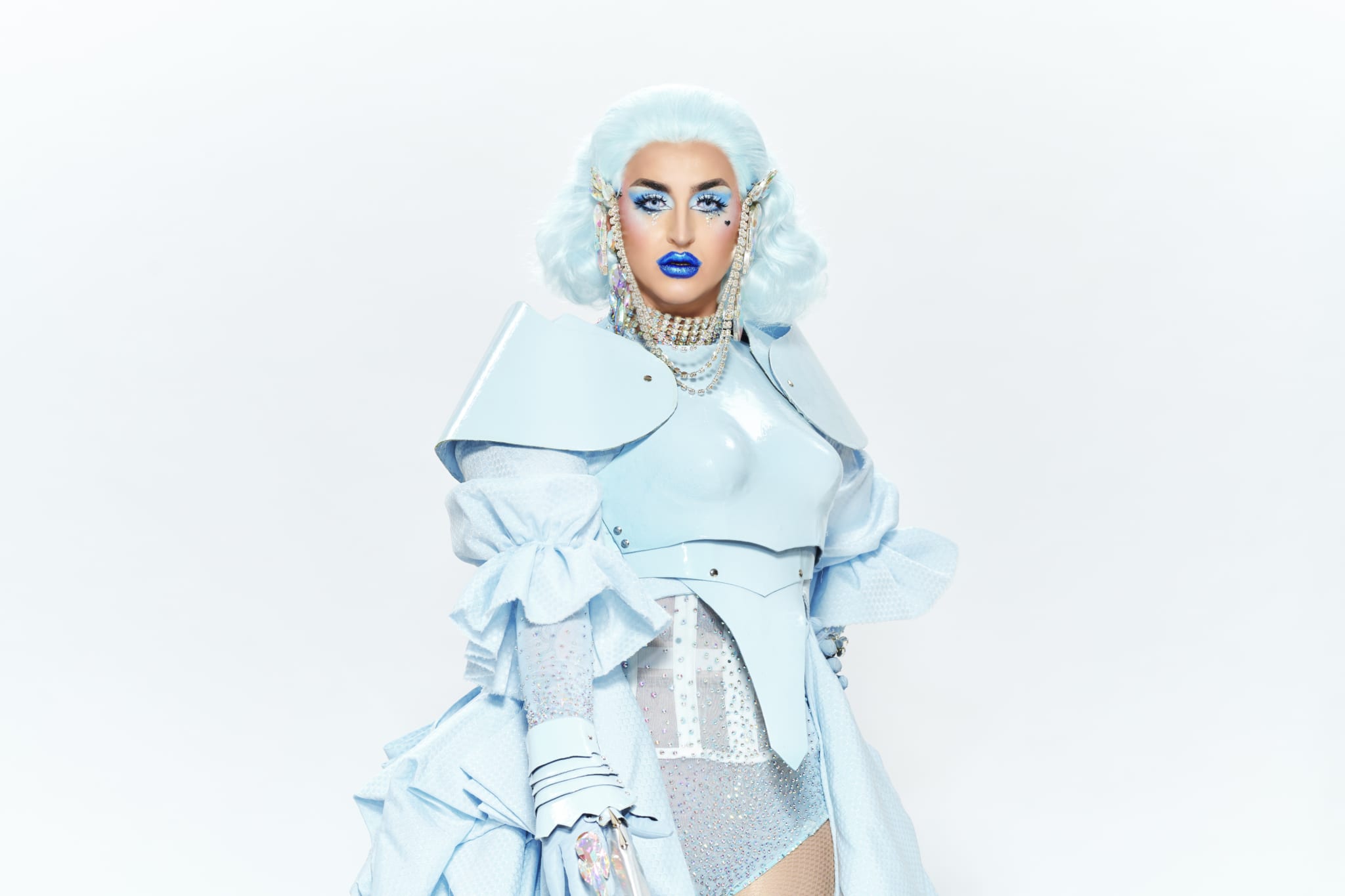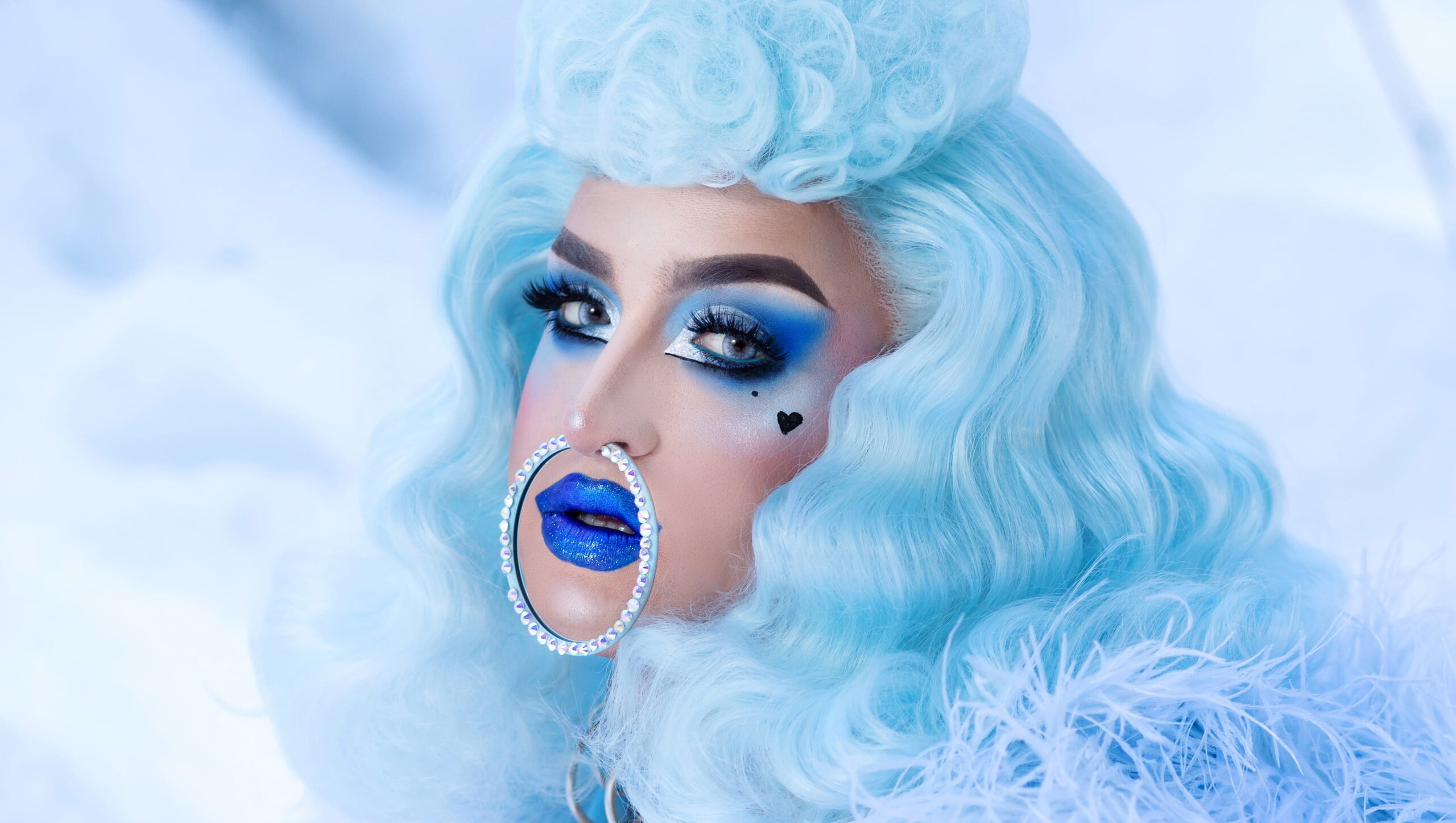As the world gets ready for the second season of Canada’s Drag Race, which starts Oct. 14, there’s still some unfinished business from the first season. As the focus shifts to 12 new contestants and the contracts for the first season queens expire, some of the OG queens are feeling free to speak their minds about what went on behind the scenes of the show.
Ilona Verley, who placed sixth on the first season of Canada’s Drag Race last year, made headlines after going public with some claims about the contract she signed and the subsequent actions of the show’s producers. Taking to Twitter last month, Verley said the show’s producers asked her not to talk about being a trans woman while filming, and that she wasn’t allowed to do sex work once the show premiered, leaving her without revenue in the middle of a pandemic.
Xtra spoke to Verley over the phone about what exactly went down during filming, what was in that contract she signed and how being on the show has held her back from being her authentic self. (We contacted Bell Media and the production company which made the Canadian series, Blue Ant Media, for comment but neither replied by press time.)
I saw that you and Anastarzia Anaquway, your castmate, were tweeting about your Canada’s Drag Race contracts ending. What did the contract say, and what are you now able to do that you couldn’t before?
Essentially, you sign a contract to be on the show, and in doing so you’re agreeing that you’re going to be aligning with the morals of the brand and the network and you’re going to present yourself as a nice, proper little package. It makes it hard because you can’t necessarily go out representing what you want to represent when you have to conform to someone else’s ideal. It’s been really hard to experience this last year and a half doing that, and not having the money to make it better. A lot of these people are signing the contracts and giving up their lives and their brands because they’re going to be rich, and with our season coming out during the pandemic, we did not have much financial gain. Looking back, I would have never sold my soul if I knew that this was going to happen. I thought I was finding a way to dig myself out of my financial hole, and I ended up just being stuck there.
So that contract is officially over.
Yep, she’s dead and gone.
You said on Twitter that the producers didn’t allow you to talk about your trans identity during the filming of your season.
I have been aware that I am trans for a pretty damn long time, and I was excited to go on the show where there hadn’t been a lot of representation previously. There was a phone call that went out to all of the contestants where we were all on mute and the producers were speaking. They were sharing media training with us for the upcoming press releases. And they said, “If any of these interviewers ask you if there is ever going to be an openly trans contestant on the show, we encourage you not to talk about it. The network isn’t ready to discuss that topic.” At the time, the network was under fire for transphobia; we were told not to talk about it and change the subject. Hearing that, I absolutely felt so dismissed as a human being. This is a really weird situation that kind of set me back because now I have this big platform and this big opportunity to represent, but I can only represent half of who I am. I felt like I needed to comply to be able to be successful with the show and with the network. I held back my transition because I wanted to be able to fit into that perfect little box that they wanted at the time.
How did you feel when they asked you to tone down how you present your identity?
I was infuriated. After all that happened, I went home, and I tattooed a “T” on my forehead to remind myself of my transness, and that I don’t owe anything to anyone as far as how I present myself.
How difficult was it to appear on this supposedly inclusive show that was meant to change your life and have it turn out the way that it did?
At the time that we filmed my season, I was aware that [Drag Race was] under a lot of fire for only including cis-presenting gay men on the show, so I was super excited to have this opportunity to go in there and provide a different viewpoint. Getting there and actually experiencing how hard I had to fight to have my identity reflected was a lot more than I thought it was going to be. But I’m very thankful that I got to go on there being very comfortable being non-binary. It sucks that I didn’t get to discuss being trans non-binary. I would have liked to. But I still got to do something that was impactful and I’m thankful for that opportunity. Some of it, honestly, was my dream come true, to be on that show. I love the show still. But I think they need to work on not tokenizing trans people and gender nonconforming people.
You also said that the producers asked you not to talk about being trans because they were “saving that storyline for the American franchise.”
That was more my own wording. They essentially told us on the phone call that the network isn’t ready to discuss those storylines yet. So that was the vibe that I got, that they weren’t talking about it but they were going to talk about it eventually.

Credit: Courtesy of Bell Media
What is it like to have who you are as a person framed as a storyline on a TV show?
With reality TV, there are archetypes and there are characters to be played out, and I was very aware of that. So I went in there being super vocal about being Indigenous. I wanted to be able to make other queer Indigenous people feel seen and feel proud. So for me, it was important that I was the Native girl, and I really didn’t shut up about being Native. But as far as being trans and not getting to showcase that, I kind of hate it. With these newer seasons, it feels like there needs to be a trans girl for it to be diverse. Half the cast should be trans. There’s so many amazing trans artists out there that would absolutely slay that show format, and for them to just put one on per season as a token is offensive.
You also said you weren’t allowed to do sex work or have OnlyFans [a subscription-based entertainment platform known for sexual content] due to the restrictions put in place by the show. What was it like for you to lose those revenue streams?
I knew that I was going to have to put those things on hold, and I was totally fine with that because I was going to have opportunities to make money off of doing my drag. Unfortunately, with the pandemic, that didn’t happen. Nightlife was totally put on hold. I was like, “Oh, shit, I’m screwed.” Trying to make money doing drag virtually was almost impossible. I was homeless when the cast was announced. Being new to being famous made me feel like I couldn’t go get a retail job. I was scrambling to try to be the perfect idea of someone who was on that show. I’m just thankful I was able to do what I was able to do to make it out on the other side, get to where I am now and actually start being able to make some money.
Did you say you were homeless when the cast was announced?
Ya, I had an art studio where I had all my drag, so I was still able to produce content, but I was couch surfing, and I spent a few nights under bridges. I was like, “I’m supposed to be famous and I don’t have a roof over my head?” I thought the show was going to change my life. I thought it was going to set me up for success. If anything, it just put me in this place where I was having to struggle to seem successful to hopefully get closer to opportunities.
Has that changed?
Yes and no. I’ve had opportunities to travel and perform as someone who’s associated with the show. But there’s no big tour, and the shows that are happening have limited capacity due to COVID-19. I’ve been able to stay afloat, but I have 100 bucks in my bank account right now. Now that the contract is over, I’m finally getting the OnlyFans going and I’m diving into the work that I’ve been wanting to dive into for quite a while now.
How does it feel to now be able to do the sex work that you wanted to do and be candid about what your last year and a half has been like?
It feels so good. I love being an open book, because I don’t like having to fear stuff. Having that kind of open-book policy has really taken a weight off my shoulder. I’m very thankful that I’m finally at that place where I can be myself.
Are you happy you did the show?
I’m thankful for the platform. I’m thankful for the exposure. I just wish things were more like the ideal that I thought they were going to be. I wish it didn’t come out during the pandemic. If it came out in the regular world, and I was able to make money, I probably wouldn’t complain. I would have the ability to be able to live my life and not struggle, but my struggles are what make me vulnerable.
You finished one of your Twitter threads by saying the producers of Canada’s Drag Race have atoning to do. What do you think atonement looks like for this show?
I think it’s time for them to understand that we’re people. We’re giving up a lot to be able to make these TV shows entertaining and good, and they need to start treating us like human beings and artists, not just pawns in a game. Among the girls who’ve been on the show, we are family because we all have been through hell with this show. It’s time for [producers] to understand that we’re the reason the show is spectacular and they need to treat us like the stars we are.


 Why you can trust Xtra
Why you can trust Xtra


